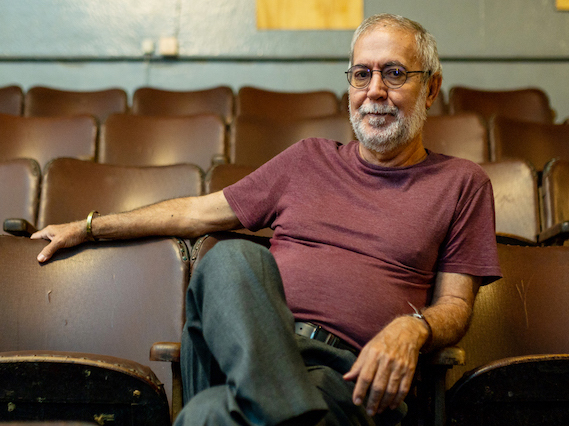SOL DE CARVALHO

BIO
SOL DE CARVALHO was born and lives in Mozambique. Studied film in Portugal. Sol worked as a journalist, editor and photographer before becoming a filmmaker in 1984. He has directed four feature films, several films for TV and Documentaries, several having been awarded in international film festivals. Hi work is socially committed and often deals with taboo subjects such as HIV/AIDs and domestic violence. A strong advocate for participatory processes, he’s often on the road in Mozambique to show his films in villages and to discuss with people. He is the current Director of PROMARTE, one of the most prestigious and oldest film and video production companies in Mozambique. O ancoradouro do tempo makes its Spanish premiere in AFRIKALDIA.
DIRECTOR’S STATEMENT
We don’t know why we have a taste for a profession or a way of expressing ourselves in life. I remember that in the post-independence period, when television first appeared and was only on once a week, there was also one from Swaziland, and the transmission was very grainy, with terrible quality. I’d come home and find my father watching television. The worst thing was that he didn’t speak English, but there was something about his fascination with images that I think I inherited. This way of looking at images and trying to identify their psychological, emotional and physical content, which is the function of cinema for me.
There’s a memory that I find interesting, and I even wrote it down in a script for a movie. We used to live in Inhambane and would go to the Tofo Cinema on Sunday afternoons to watch cowboy action movies. Whenever the movie started, I’d get tense, my organ functions would stop working and I’d go to the bathroom to vomit. It happened several times, and it was only later that I realized it was because of the cinema. So you can’t explain why you like something.
For Mozambique’s cinema to explode we need Money and knowledge, because we’ve invested a lot in education in recent years, but we have to think about what education is. It’s not even the problem of writing, but rigor. Is it more important to have technicians than to invest in training creators? There’s an idea that Mozambique is a creative country and that you don’t need to study for that. But that’s wrong. From the incredible stories that the country has to the document, there is a process, a long way to go and it needs knowledge, competence and work “from home”. It’s the university that has to make this journey.

